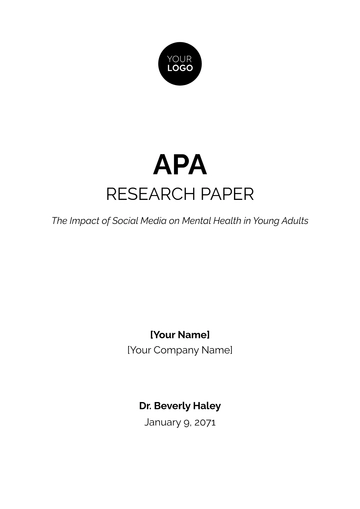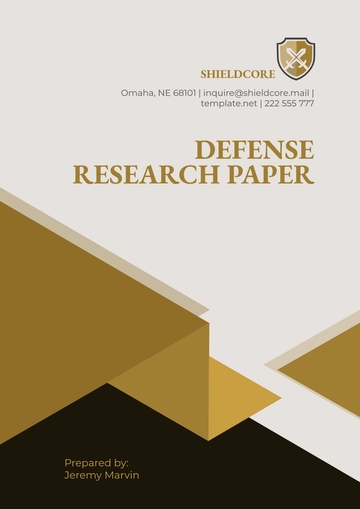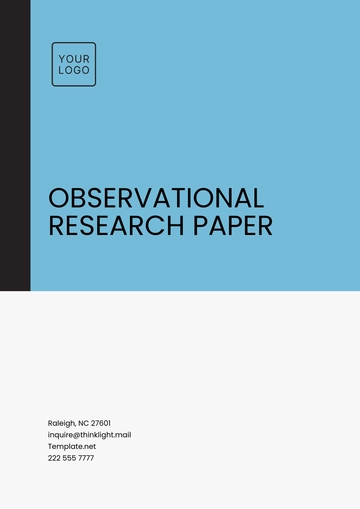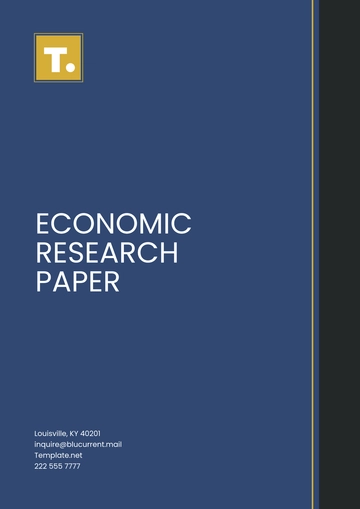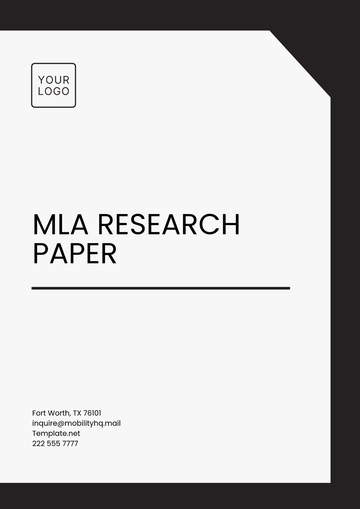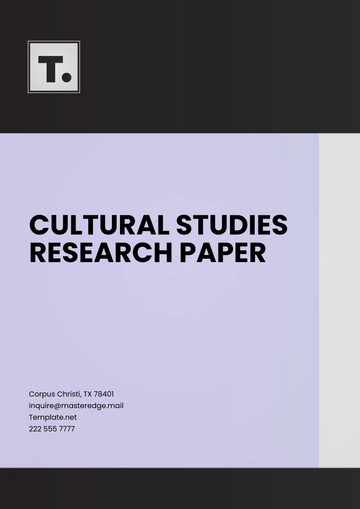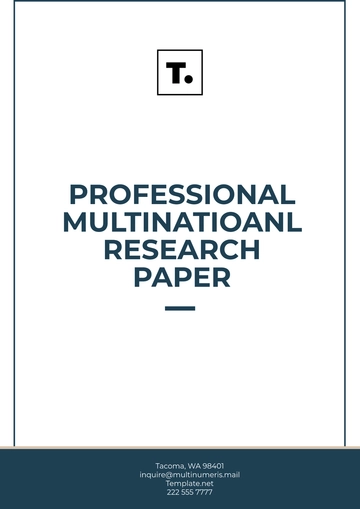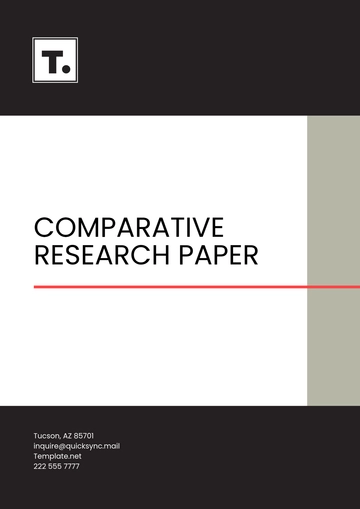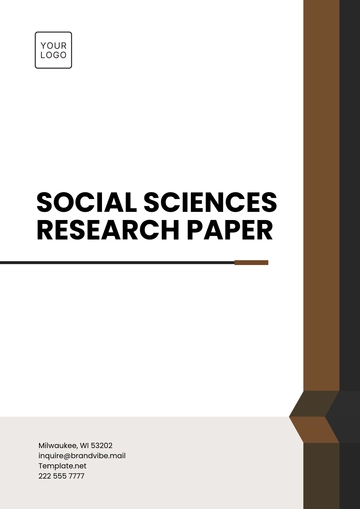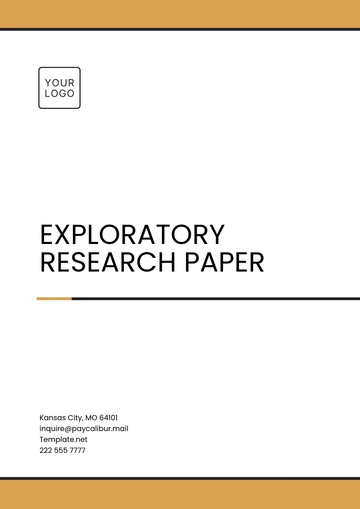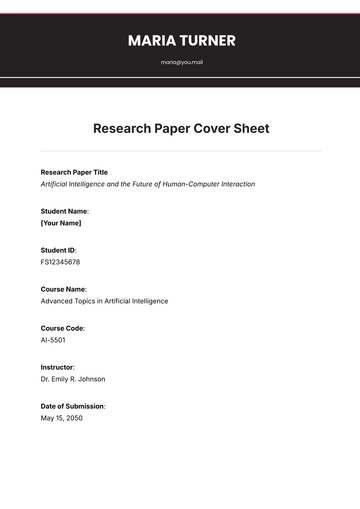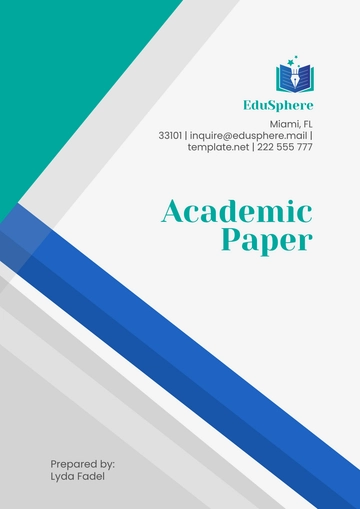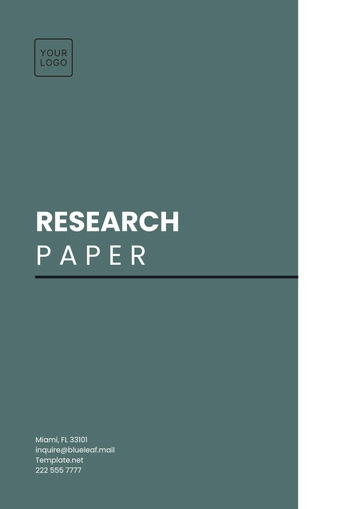Free Qualitative Research Paper
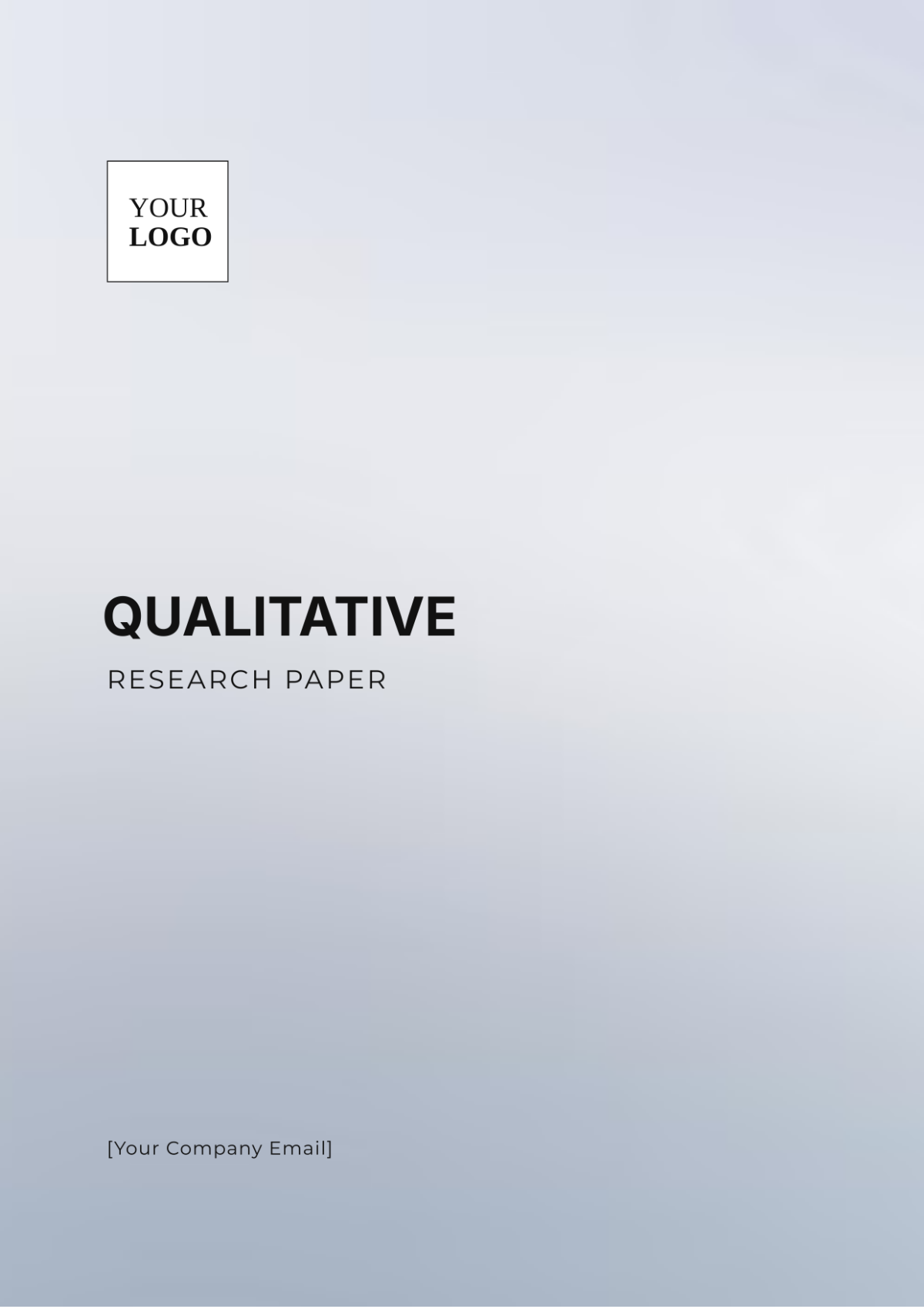
Prepared By: [Your Name]
Abstract
This qualitative study explores the impact of social media on adolescent self-esteem. Through in-depth interviews with 15 high school students aged 14-18, the research investigates how social media platforms influence their perceptions of self-worth. Thematic analysis was used to identify key themes, including the role of online validation, comparison with peers, and the influence of influencers. The findings suggest that while social media can offer a platform for self-expression and connection, it also poses risks to self-esteem through constant comparison and the pressure to conform to curated online personas.
Keywords
Social media, adolescent self-esteem, qualitative research, thematic analysis, online validation
I. Introduction
The rise of social media has transformed the way adolescents interact, communicate, and perceive themselves. While these platforms offer opportunities for self-expression and social connection, they also expose young users to idealized images and social comparisons that can affect their self-esteem. This study aims to explore the nuanced ways in which social media impacts adolescent self-esteem by examining the experiences and perspectives of high school students.
II. Literature Review
Previous research has shown mixed results regarding the influence of social media on self-esteem. Some studies suggest that social media can enhance self-esteem through positive feedback and social support, while others highlight the negative effects of social comparison and cyberbullying. This section reviews the existing literature on the relationship between social media use and adolescent self-esteem, focusing on key factors such as online validation, peer comparison, and identity formation.
III. Methodology
A. Research Design
This study employs a qualitative research design, using in-depth interviews to gather data from participants. A qualitative approach was chosen to allow for a rich, detailed exploration of participants' experiences and perspectives.
B. Participants
Fifteen high school students aged 14-18 were recruited for this study. Participants were selected through purposive sampling to ensure a diverse representation of social media use and self-esteem levels.
C. Data Collection
Data were collected through semi-structured interviews conducted in a quiet, private setting. Interviews lasted between 45-60 minutes and were audio-recorded with participants' consent. The interview guide included open-ended questions about participants' social media habits, experiences of online validation, and the impact of social media on their self-esteem.
D. Data Analysis
Thematic analysis was used to analyze the interview data. Transcripts were coded, and themes were identified through an iterative process. The analysis focused on capturing the complexity of participants' experiences and the different ways social media influenced their self-esteem.
IV. Findings
The analysis revealed three main themes:
A. Online Validation
Participants reported that receiving likes, comments, and shares on social media posts significantly influenced their self-esteem. Positive feedback often boosted their confidence, while negative or lack of feedback led to feelings of inadequacy.
B. Peer Comparison
Many participants discussed the pressure to compare themselves with peers who appeared to have more successful or glamorous lives on social media. This comparison often resulted in diminished self-esteem, as participants felt they were not living up to these idealized standards.
C. Influence of Influencers
Participants noted that social media influencers played a significant role in shaping their self-image. While some found inspiration in influencers' content, others felt pressured to emulate their lifestyles and appearances, leading to anxiety and reduced self-esteem.
V. Discussion
The findings underscore the complex and dual-edged impact of social media on adolescent self-esteem, revealing both its empowering and detrimental effects.
Social media serves as a valuable platform for fostering positive reinforcement, enabling adolescents to receive support and validation from peers.
It encourages self-expression by providing a space for creative exploration and personal identity formation, which can enhance self-confidence.
Conversely, it facilitates harmful comparisons, exposing adolescents to curated, often unrealistic portrayals of others' lives, which can diminish self-esteem.
Additionally, it perpetuates unattainable standards and expectations, fostering feelings of inadequacy and pressure to conform.
These findings corroborate existing research, emphasizing the need for proactive education to help adolescents navigate social media use critically and foster resilience against its potential pitfalls.
VI. Conclusion
This study provides insights into the complex relationship between social media and adolescent self-esteem. The findings suggest that while social media offers certain benefits, it also poses risks to adolescents' self-worth. Future research should explore intervention strategies to help young people navigate social media in a way that supports healthy self-esteem.
- 100% Customizable, free editor
- Access 1 Million+ Templates, photo’s & graphics
- Download or share as a template
- Click and replace photos, graphics, text, backgrounds
- Resize, crop, AI write & more
- Access advanced editor
Explore complex phenomena with Template.net's Qualitative Research Paper Template. This editable and customizable template offers structured sections for research questions, data collection, thematic analysis, and discussion. Editable in our AI Editor Tool, it supports the systematic presentation of your qualitative research, ensuring your insights are communicated and your analysis is thorough and well-organized.



